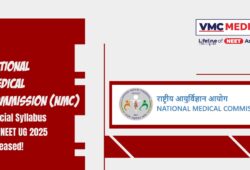The Crucial Role of Mock Tests and Previous Year Papers in Achieving NEET Success
 Posted On
Posted On
270 total views, 2 views today
The National Eligibility cum Entrance Test (NEET) is undoubtedly one of the most competitive and challenging examinations in India. Aspiring medical professionals across the nation strive to secure a seat in prestigious medical colleges through this standardized examination. However, the journey to NEET success is no easy feat. It demands consistent dedication, rigorous preparation, and a strategic approach. Among the various tools at a NEET aspirant’s disposal, mock tests and previous year papers stand out as essential resources that can significantly enhance their preparation. In this blog, we’ll delve into the reasons why these tools are crucial for NEET success.

Simulating the Real Exam Environment
Mock tests provide candidates with the closest experience to the actual NEET exam. The format, timing, and difficulty level of mock tests closely resemble the real thing, helping aspirants familiarize themselves with the exam’s pattern. By regularly taking mock tests, students can overcome the initial nervousness and anxiety that often accompany high-stakes exams. This simulation of the real exam environment boosts their confidence and mental preparedness, which are vital for achieving success.
Time Management Skills
Time management is a key factor in NEET success. With a limited time frame to answer a substantial number of questions, effective time utilization is critical. Mock tests help aspirants hone their time management skills by imposing the same time constraints as the actual exam. By practicing with mock tests, candidates learn how to allocate time to each section and question, ensuring that they don’t get stuck on a single question and lose valuable time. This skill becomes particularly important in the context of NEET’s negative marking system, where efficient time management can prevent unnecessary deductions.
Identifying Strengths and Weaknesses
Mock tests provide a comprehensive assessment of an aspirant’s strengths and weaknesses. Analyzing the results of these tests helps students understand which subjects and topics they excel in and which ones require more attention. This self-evaluation allows candidates to focus their efforts on areas that need improvement. Consequently, they can create a more targeted study plan, allocating more time to subjects they struggle with while maintaining their strengths.
Adapting to Exam Pattern and Question Styles
NEET tends to have a consistent exam pattern, with questions covering a wide range of topics from the syllabus. Regular exposure to previous year papers and mock tests exposes candidates to various question styles and topics. This exposure helps them become adept at recognizing question patterns, understanding the type of questions that are frequently asked, and adapting their approach accordingly. Over time, this familiarity leads to improved accuracy and faster problem-solving during the actual exam.
Fine-tuning Problem-Solving Techniques
Mock tests offer a platform for refining problem-solving techniques and strategies. As aspirants attempt a diverse array of questions, they develop a toolkit of effective approaches to tackle different types of problems. These strategies can include methods to quickly eliminate incorrect answer choices, identify key information in lengthy questions, and prioritize questions based on difficulty. By experimenting with different techniques during mock tests, students can determine which methods work best for them, enhancing their efficiency during the actual exam.
Building Endurance and Stamina
The NEET exam is a lengthy affair, spanning several hours. To perform optimally throughout the exam duration, candidates need physical and mental endurance. Taking full-length mock tests helps build this endurance, conditioning aspirants to remain focused and alert for the entire duration of the exam. This practice also aids in reducing mental fatigue and helps maintain consistency in performance across all sections.
Tracking Progress and Growth
Regularly practicing with mock tests provides a quantifiable measure of progress. Candidates can compare their scores over time, observing how their performance improves as they continue to prepare. This sense of growth and improvement is not only motivating but also helps in identifying trends. For example, if scores in a particular subject consistently improve, it indicates effective preparation strategies for that subject. Conversely, if scores stagnate, it may highlight the need for adjustments in study techniques or additional effort in that area.
Mitigating Exam Anxiety
One of the greatest challenges during any high-stakes exam is managing anxiety and stress. Mock tests act as a buffer against this anxiety. As candidates repeatedly subject themselves to exam-like conditions through mock tests, the fear of the unknown gradually diminishes. This familiarity reduces exam anxiety, allowing aspirants to remain calm and composed during the actual NEET exam.
Final Thoughts
In the journey towards NEET success, mock tests and previous year papers are more than mere preparatory tools—they are indispensable companions. The benefits of simulating the exam environment, refining time management skills, identifying strengths and weaknesses, adapting to the exam pattern, and building problem-solving techniques all contribute to a candidate’s holistic preparation. These practices not only enhance academic performance but also cultivate the mental resilience required to excel in a competitive setting. Aspirants who incorporate mock tests and previous year papers into their study regimen are better equipped to face the challenges of NEET with confidence and ultimately increase their chances of achieving success.




